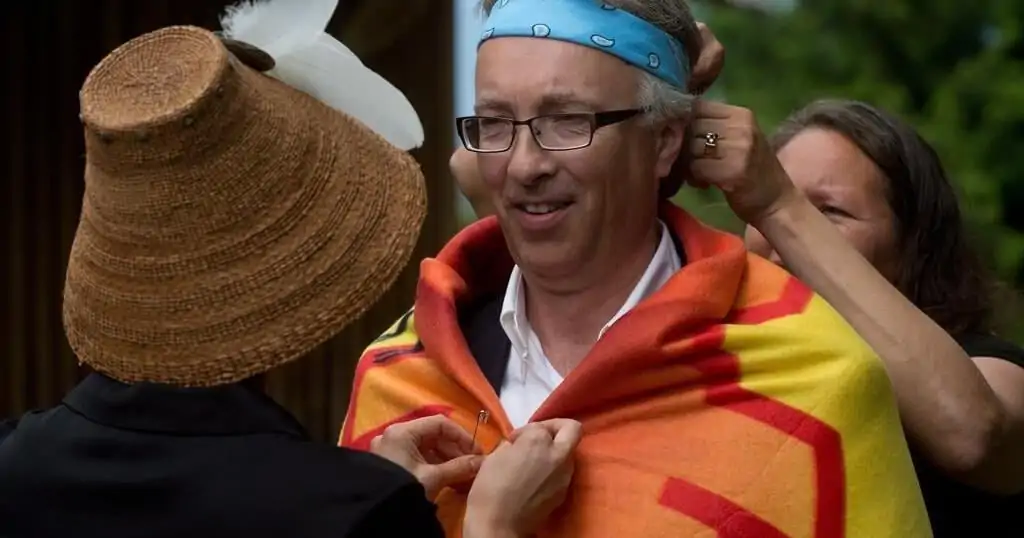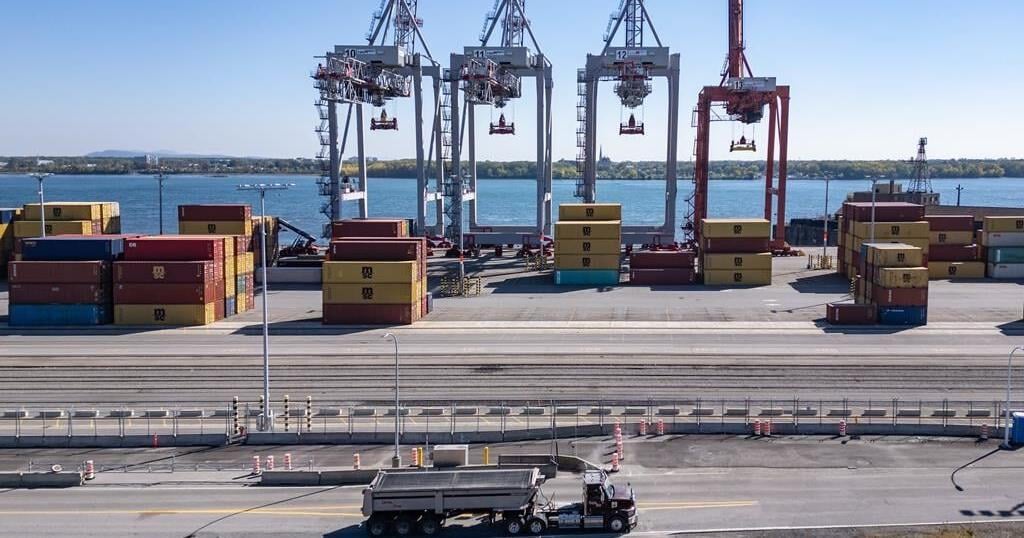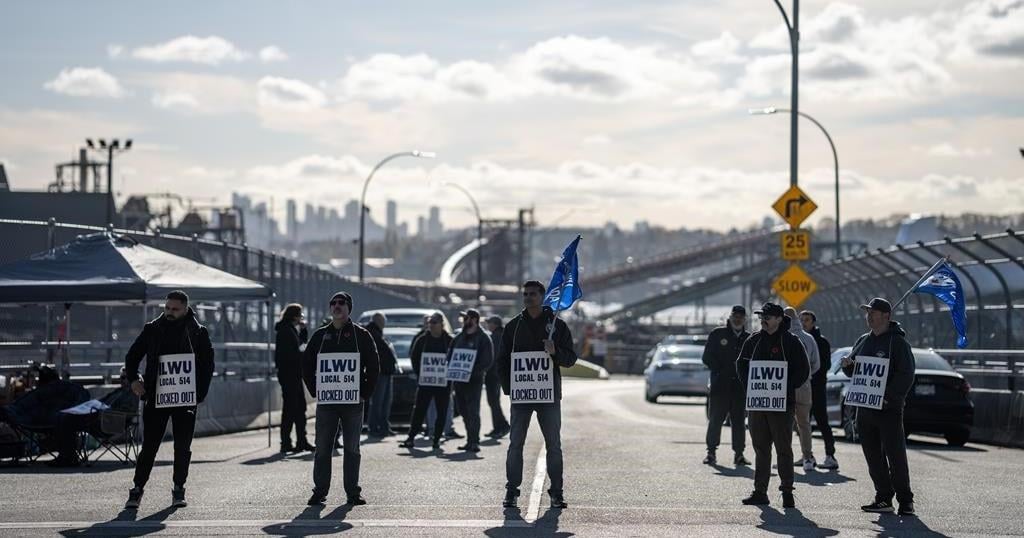British Columbia saw a rare unanimous vote in its legislature in October 2019, when members passed a law adopting the United Nations Declarations on the Rights of Indigenous Peoples, setting out standards including free, prior and informed consent for actions affecting them.
The law “fundamentally changed the relationship” between First Nations and the province, said Terry Teegee, regional chief of the B.C. Assembly of First Nations.
“Rather than having some sort of consultation, right now we’re actually talking about shared decision-making,” Teegee said in an interview.
John Rustad threw his support behind the legislation as a member of the Official Opposition B.C. Liberal Party, but as the B.C. Conservative leader he has since signalled his intention to “repeal” the law if his party wins the Oct. 19 provincial election.
Rustad said in a statement on the Conservatives’ website last February, that the UN declaration, known as UNDRIP, was “established for conditions in other countries — not Canada.”
Teegee said Rustad was “creating enemies” with First Nations.
“As we come to Sept. 30, he’s repealing, in a way, reconciliation,” Teegee said in an interview ahead of the National Day for Truth and Reconciliation. “He’s undoing a lot of the good work that many people in this province have worked toward.”
B.C.’s legislation adopts the declaration as the framework for reconciliation and charts a path for the province to negotiate agreements with First Nations aimed at establishing shared decision-making in their territories.
It has led to changes in provincial laws related to land management, including mining and forestry, and it has helped facilitate progress in returning jurisdiction to First Nations over the welfare of their children, Teegee said.
Unravelling the nearly five-year-old legislation would set reconciliation back in B.C., he said, leaving First Nations without a forum to hold constructive discussions about the recognition of land rights and shared decision-making with the province.
“I think it (would) bring us back to 40 years ago, maybe even longer, when the first court cases began by the Nisga’a and Calder,” he said, referring to a landmark case that led to the Supreme Court of Canada recognizing Aboriginal title in 1973.
“If we’re at odds with each other, then many First Nations will continue to do what they did before, (which) was to go to court,” he said. “It leaves a lot of uncertainty.”
The Canadian Press requested an interview with Rustad related to his stance on B.C.’s declaration legislation, but did not receive follow up to arrange a call.
Conservative candidate A’aliya Warbus, a member of the Sto:lo Nation, said asking Rustad about the declaration was “top of mind” when she first met him.
“What the heck? Why would we take this legislation? We fought hard, Indigenous communities, for our rights and recognition of those rights, and upholding social determinants of health in our communities, and this legislation helps us do that.”
But Warbus, who is running in Chilliwack-Cultus Lake, said she was “really satisfied” with her conversation with Rustad.
She said Rustad “explained” that adopting an international framework such as UNDRIP wasn’t the right fit for B.C.’s context, with more than 200 unique First Nations and vast traditional territories that aren’t covered by treaties.
Warbus said B.C.’s declaration legislation is “97 per cent good,” but the application of free, prior and informed consent had not been settled in the province.
She pointed to conflict over the Coastal GasLink pipeline in northwestern B.C.
Opposition among Wet’suwet’en hereditary chiefs to the 670-kilometre pipeline sparked rallies and rail blockades across Canada in 2020, while the elected council of the Wet’suwet’en First Nation and others nearby had agreed to the project.
“That was a key example of how free, prior, informed consent, without definition, doesn’t tell us who gets to make that decision at the end of the day,” Warbus said.
The 670-kilometre pipeline was mechanically completed in November 2023 and an update posted to the project website in June says the focus had turned to the safe operation of the pipeline system as well as cleanup and reclamation work.
“There’s no impetus from me or the party to go backwards on reconciliation at all,” said Warbus, whose father is former B.C. lieutenant-governor Steven Point.
The switch in Rustad’s stance on the declaration came as he was speaking out against proposed changes to B.C.’s Land Act, which have since been scrapped.
The Conservative statement last February starts by saying the changes were an “assault” on private property rights and the right to access shared Crown land.
“Conservatives will defend your rights to outdoor recreation — and your water access, as well as B.C.’s mining, forestry, agriculture sectors and every other land use right,” said the statement posted by Rustad.
A provincial consultation presentation said the proposed changes would have opened the door for shared decision-making under the Land Act, but nothing would require the province to enter into such an agreement with a First Nation.
“The public interest will be a critical part of any provincial government decision to enter into a negotiation of an agreement,” the slide deck said.
The B.C. government announced later in February it was dropping the plan.
At the time, the minister of water, land and resource stewardship, Nathan Cullen, issued a statement saying “some figures (had) gone to extremes to knowingly mislead the public about what the proposed legislation would do.”
Cullen said he spoke with many people during the consultation process who were “surprised to learn that the claims being made … were not true and that there would be no impacts to tenures, renewals, private properties or access to Crown land.”
B.C. Indigenous leaders, including Teegee, have said Rustad was making false statements about the province’s plan and stoking anti-Indigenous sentiment.
In an interview, Teegee said Rustad was engaging in “fear mongering” and using First Nations as a “wedge issue” for political gain ahead of the election.
“I don’t think he can be trusted.”
Rustad led the Ministry of Indigenous Relations and Reconciliation in Christy Clark’s Liberal government, the department was then called Aboriginal Relations,and his statement in February says he signed 435 agreements with First Nations during his tenure as minister.
“Through this economic reconciliation, we saw First Nations communities rise up from impoverished conditions and truly begin to thrive,” the statement says.
Teegee, however, said many of the First Nations leaders who signed agreements during that time would have “plugged their nose and signed them.”
“Some of those First Nations signed them under duress and put that in their agreement themselves. I know my nation did, stating that this wasn’t accommodation,” said Teegee, a member of the Talka Nation in northern B.C. who previously served as tribal chief of the Carrier Sekani Tribal Council.
When asked about criticism of Rustad by other Indigenous leaders, Warbus said it’s “all the more reason to work with him, all the more reason to be directly involved.”
“I feel strongly that Indigenous people need to be inside, involved on the ground, at the legislature level, and that is why I’m doing this,” she added.
This report by The Canadian Press was first published Sept. 29, 2024.

























